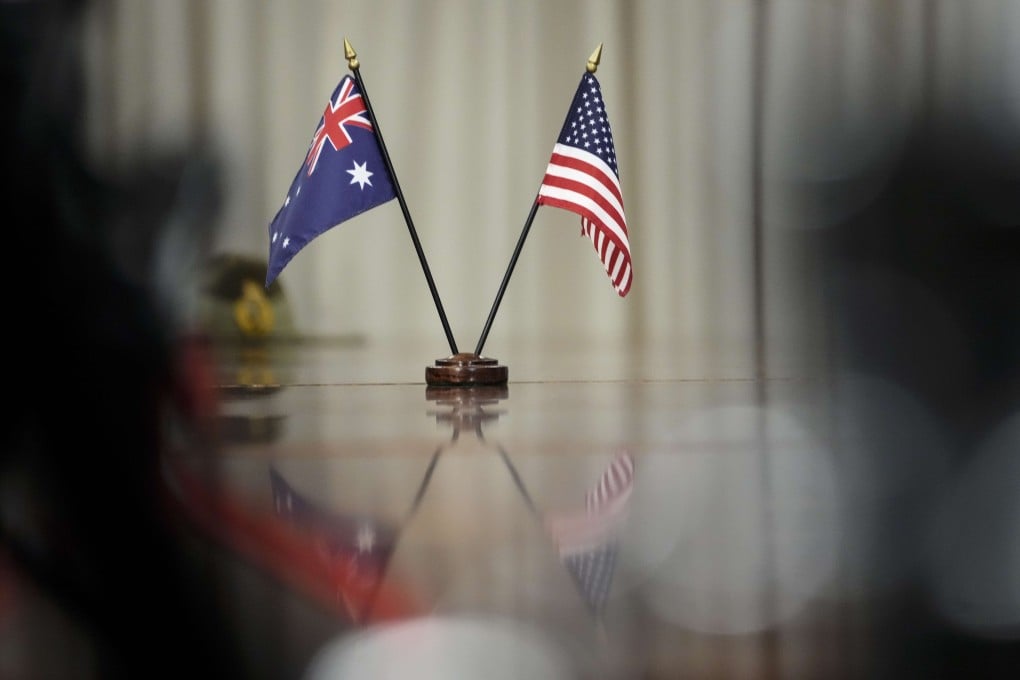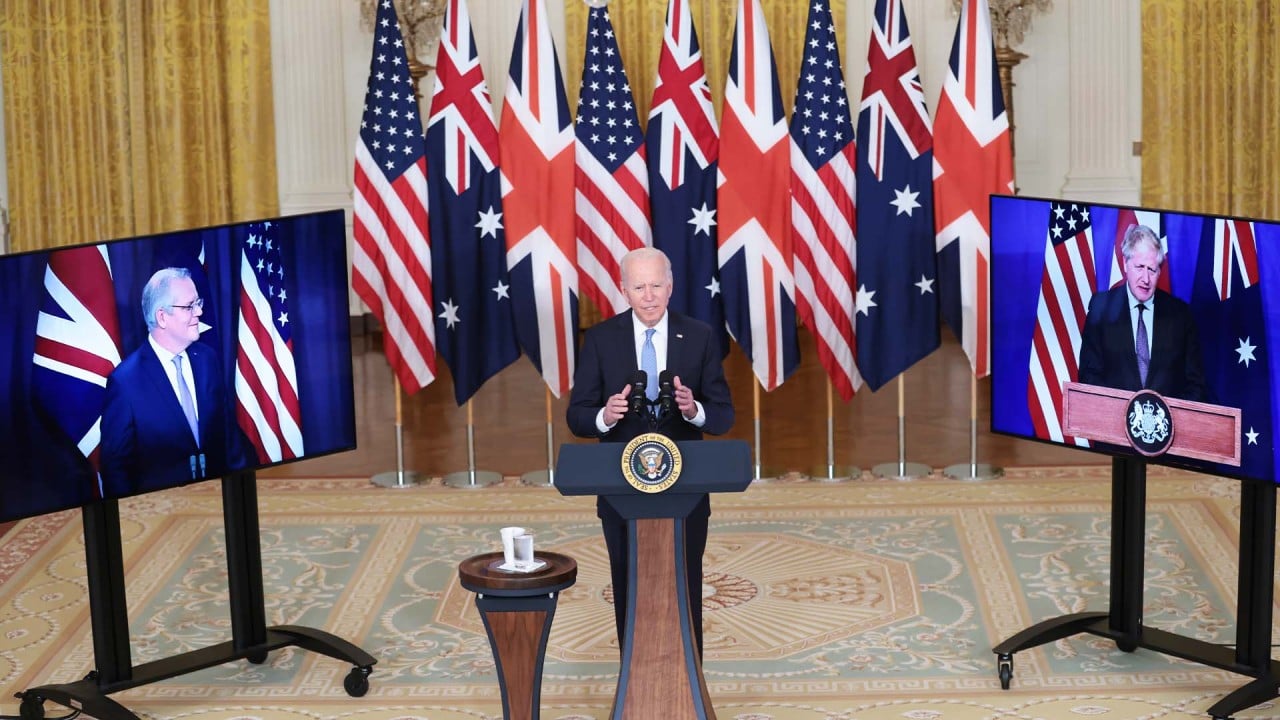Explainer | Aukus alliance: what is it, what does it have to do with China, and why is France angry?
- The partnership’s founding provoked strong reactions from other countries, who cited security concerns, financial loss and betrayal
- It will give Australia nuclear-powered submarines, but is seen as part of a broader plan

Why has there been such a ruckus over a trilateral defence agreement? Here is the lowdown.
What is the significance of the Aukus alliance?
Under the Aukus pact, the US and UK will help Australia build at least eight nuclear-powered submarines, the first time that Washington and London will be sharing sensitive nuclear submarine technology with Canberra.

03:51
US, UK, Australia announce ‘historic’ military partnership in Pacific
The biggest benefit of nuclear-powered submarines is that they are able to stay submerged longer, with enough fuel to theoretically run for years, which is an advantage in stealth attacks. Conventional submarines that use diesel-powered electric motors have to resurface regularly so that their batteries can be recharged, allowing them to be spotted more easily.
There are currently only six countries with nuclear-powered submarines – the US, Russia, China, the UK, France and India – with Australia set to become the seventh under the new pact. The US is the world leader in this area, with 68 nuclear-powered submarines, while Russia has 29 and China has 12, according to the International Institute for Strategic Studies, a London-based research centre.
Why do China and other countries care, if they are not involved?
